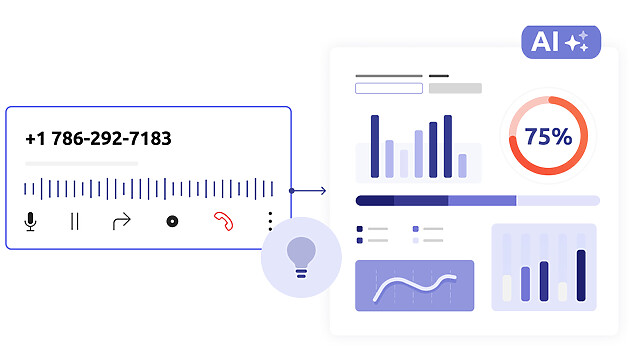Artificial Intelligence Machine Learning (AI/ML)
Automate support, scale customer interactions, and deliver personalized experiences in real-time
What is Artificial Intelligence Machine Learning?
Artificial Intelligence Machine Learning (AI/ML) refers to the use of algorithms and data-driven models that continuously learn and adapt over time—rather than relying solely on hardcoded instructions. In the context of customer service, sales, and business operations, AI/ML makes it possible for software to analyze large volumes of customer interactions, detect trends, and understand natural language with increasing accuracy. As a result, businesses can automate support, improve insights, and optimize workflows at a level impossible through manual processing alone.

The Benefits of Artificial Intelligence Machine Learning
Smart Process Automation
Artificial Intelligence Machine Learning (AI/ML) enables businesses to automate repetitive and rules-based tasks with far greater flexibility than traditional automation tools. From data entry and ticket classification to fraud detection and dynamic pricing, AI/ML systems continuously adapt to new patterns and improve over time. The result is less manual work, reduced errors, and intelligent decision-making across business functions, teams, and departments.

Improved Customer Experience
AI/ML transforms customer interactions by enabling faster, more personalized, and context-aware responses across all channels. These systems learn from historical data, customer preferences, and behavioral cues to predict needs and deliver relevant solutions in real-time. Whether through chatbots, recommendation engines (also known as “recommender systems”), or proactive alerts, AI/ML ensures consistent, high-quality service without increasing operational costs. The end result: higher customer satisfaction, stronger loyalty, and increased lifetime customer value.

The challenges of Artificial Intelligence Machine Learning
Integration with Legacy Systems
Integrating AI/ML capabilities into existing enterprise environments is often complicated by outdated legacy systems that were not designed for modern data architectures or real-time processing. These systems may lack APIs, standardized data formats, or cloud connectivity, making it difficult to extract or synchronize the data.
Data Quality and Volume
Inconsistent, incomplete, or unstructured data can introduce noise, bias, and overfitting, which significantly diminishes the performance of AI/ML algorithms. Additionally, without a continuous stream of updated data, models can become stale, making them less effective in dynamic environments where variables change quickly.
Uses of Artificial Intelligence Machine Learning
How to improve brand experience with Artificial Intelligence Machine Learning?
To truly enhance the customer journey, integrate AI/ML technologies into every stage of your support and engagement strategy. Use intelligent automation to speed up responses, reduce human error, and ensure personalization at scale.

FAQ
What are common applications of Artificial Intelligence Machine Learning?
AI/ML is increasingly being integrated into a wide range of applications and modern technologies such as virtual assistants, predictive analytics, image & speech recognition, customer segmentation, chatbots, and fraud detection.
What kind of tasks can artificial intelligence machine learning automate?
AI/ML can handle a wide range of tasks, including answering FAQs, routing tickets, updating customer data, and guiding users through self-service flows. It can also assist with complex processes like satisfaction detection or sales qualification. By automating these workflows, businesses save time while maintaining service quality.
Is artificial intelligence machine learning suitable for small businesses?
Absolutely. Modern AI/ML tools are scalable and affordable, making them accessible to businesses of all sizes. Small companies can deploy AI-powered solutions for chat, email, or voice support to improve efficiency without growing their headcount. As they grow, the system grows with them, continuing to deliver value at every stage.
How secure is data handled by artificial intelligence machine learning systems?
Solutions like Diabolocom prioritize data security with encryption, access controls, and compliance with global privacy standards. We process customer data responsibly and often include built-in tools to anonymize, encrypt, or protect sensitive information. Still, it’s essential for businesses to vet vendors carefully and align usage with internal policies. With the right safeguards, AI/ML solutions can be both powerful and secure.